Latest News
Washington struggling to isolate the Islamic Emirate
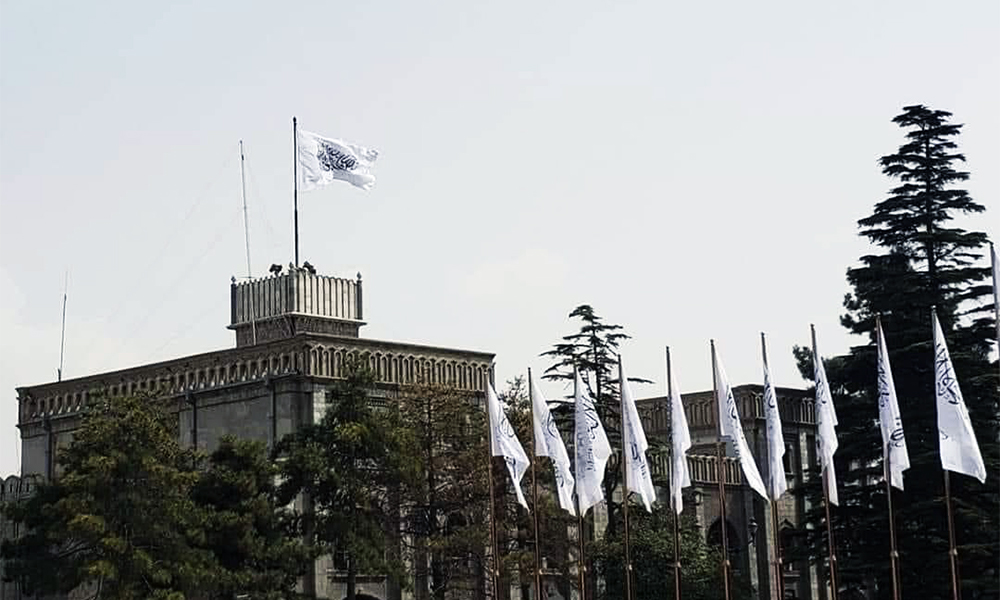
A growing number of governments, including China, are going against Washington’s approach and are not treating the Islamic Emirate as a pariah regime.
According to an article published in Foreign Affairs, the United States and its allies’ approach has been to isolate the Islamic Emirate of Afghanistan (IEA), by withholding diplomatic recognition and the benefits that usually come with normal diplomatic relations.
The approach that the United States and its allies and partners ultimately converged on was a commitment to continue engaging with the Afghan people—for example by providing substantial humanitarian aid—while withholding diplomatic recognition of the IEA and the benefits that usually come with normal diplomatic relations.
In fact, over the past two years, the United States has sought to build on this approach—not only by withholding its own recognition of the IEA but also by sustaining an international consensus on nonrecognition.
However, in the wake of concerted diplomatic efforts by the IEA to court neighboring countries and others in the region, several nations have been willing to accommodate the Islamic Emirate.
As Foreign Affairs reported, these states are among foreign governments that have embassies in Kabul and that host Afghan embassies overseas.
In January, several of these powers, including China, Iran, and Russia, even took part in a multilateral conference of their own hosted by the IEA.
Meanwhile, the IEA appears to be unmoved by global shaming, in particular when it comes to what they deem domestic affairs, such as the question of girls’ access to higher education and women’s right to work, Foreign Affairs reported.
Instead, Afghanistan’s leaders have portrayed international pressure as a violation of the country’s sovereignty, framing calls by Western leaders to uphold international norms as the latest episode in a long history of interference and intervention.
As the IEA has become more established in power, they have doubled down on a posture of resistance. As a result, rather than moderate their policies, they have pressed forward with further restrictions on women and social norms, Foreign Affairs reported.
The article stated that the erosion of the consensus on diplomatic isolation of the IEA raises important questions for Washington and its partners.
Nonrecognition is no longer a credible coercive tool, and if the United States seeks to influence the Islamic Emirate’s behavior, it must find other ways to achieve its desired aims.
Moreover, the Afghan case echoes similar situations Washington has faced with other difficult regimes, including its failure to prevent Arab countries from normalizing ties with Syrian leader Bashar al-Assad, despite crimes committed during the Syrian civil war, or to enforce a global consensus on the isolation of Russian President Vladimir Putin following Russia’s invasion of Ukraine.
Today, attempts by the United States to impose pariah status on regimes it doesn’t like are running up against serious limits.
However, analysts disagree on why Russia and China have not taken the final step of recognizing the IEA. One possibility is that both powers still seek more assurances from Kabul, especially concerning potential terrorist threats from (Daesh) Islamic State Khorasan and a number of other groups.
And as long as the United States actively promotes a nonrecognition strategy, Moscow and Beijing can reap many of the benefits of recognizing the IEA without having to formally buck the international consensus, Foreign Affairs reported.
“Thus, they can reassure the Taliban (IEA) they are on their side (for example by backing them in last December’s UN Security Council proceedings, defending Taliban positions on the recommendations of a recent UN assessment) while also withholding full recognition,” the article read.
Overall, the IEA is not being treated as a pariah regime – despite concerted US efforts to maintain an international consensus on nonrecognition. On the contrary, the region, led by China, is gradually normalizing with Kabul—and intends to continue doing so.
The IEA, for their part, are being validated by this expanding engagement. Their sense of confidence and a loss of patience with conditions-based, Western-backed engagement was evident in their refusal to attend the UN meeting of Afghan envoys in February.
The IEA was not invited to last year’s summit, so they rejected the new meeting as “ineffective and counterproductive.” Likely emboldened by Beijing treating them as a normal regime, the IEA responded to the UN’s invitation by insisting they be treated as the legitimate government of Afghanistan.
Foreign Affairs reported that with new sources of support, the IEA has less reason to submit to Western demands on human rights or inclusiveness in their government.
The failure of Washington’s existing IEA approach highlights the growing challenges to US diplomatic power around the world, Foreign Affairs stated.
Amid two major wars and intensifying strategic competition with China, the United States faces new difficulties in forging a collective international response to pressing global crises.
Meanwhile, China and regional actors are charting their own diplomatic paths, and regimes that the United States seeks to pressure can often find enough friends to defy Washington and maneuver for diplomatic gain, Foreign Affairs reported.
Latest News
Turkish intelligence captures a Daesh member near the Durand Line
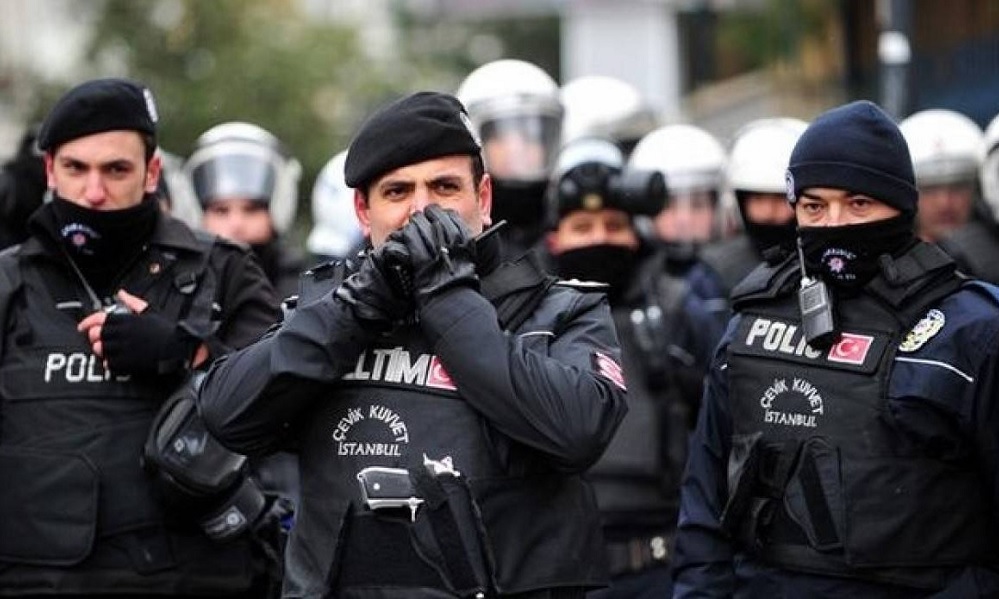
Turkish intelligence agents have captured a senior member of Daesh near the Durand Line, reportedly preventing planned suicide attacks in Turkey and other countries, according to Turkey’s state-run Anadolu Agency on Monday.
The suspect, identified as Mehmet Goren, is a Turkish citizen. He was apprehended during a covert operation and transferred to Turkey. Details on the timing of the operation or the involvement of Afghan and Pakistani authorities were not disclosed.
According to the report, Goren had risen through the ranks of Daesh and was allegedly tasked with carrying out suicide bombings in Turkey, Pakistan, Afghanistan, and Europe.
Daesh has a history of deadly attacks in Turkey, including the January 1, 2017 shooting at an Istanbul nightclub that killed 39 people.
Anadolu Agency reported that Goren’s arrest also provided intelligence on the group’s recruitment strategies and planned activities.
Latest News
Dozens of needy families in Kabul receive winter aid from Bayat Foundation
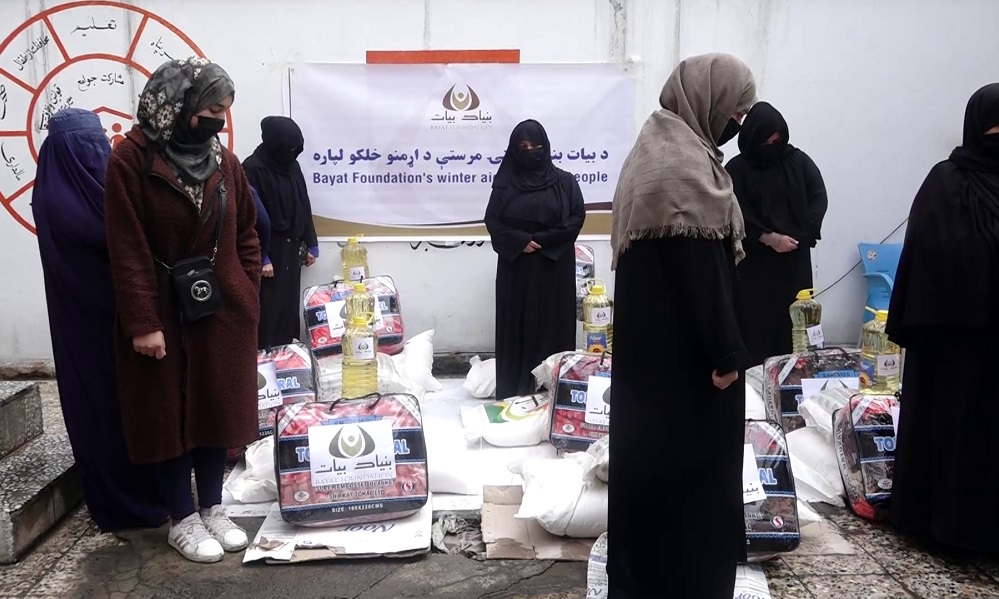
Dozens of needy families in Kabul’s fifth district have received essential winter assistance from the Bayat Foundation, as part of ongoing efforts to ease hardship during the cold season and worsening economic conditions.
According to foundation officials, the aid package includes staple food items such as flour, rice, and cooking oil, along with warm blankets to help families cope with freezing temperatures. Haji Mohammad Ismail, Deputy Head of Bayat Foundation, said the distribution began in Kabul and will soon be expanded to other provinces.
“Our assistance includes flour, rice, cooking oil, and blankets,” Ismail said. “Today, we started distributing these items in Kabul’s fifth district, and God willing, the aid will reach other provinces in the near future.”
Afghanistan continues to face widespread poverty, unemployment, and food insecurity, with many families struggling to meet basic needs, particularly during winter when access to work and heating becomes more difficult.Humanitarian organizations and charitable foundations have stepped up relief efforts to support those most affected.
Beneficiaries welcomed the assistance, describing it as a lifeline. “May God bless you for helping the poor. We had nothing and no work,” said one recipient. Another added, “Thank you for your help. Our flour was almost finished.”
Bayat Foundation officials stressed that winter aid distributions will continue in Kabul and other provinces in the coming days, as part of their broader commitment to supporting needy families across the country.
Latest News
Nearly seven million Afghan refugees return home since Islamic Emirate’s takeover
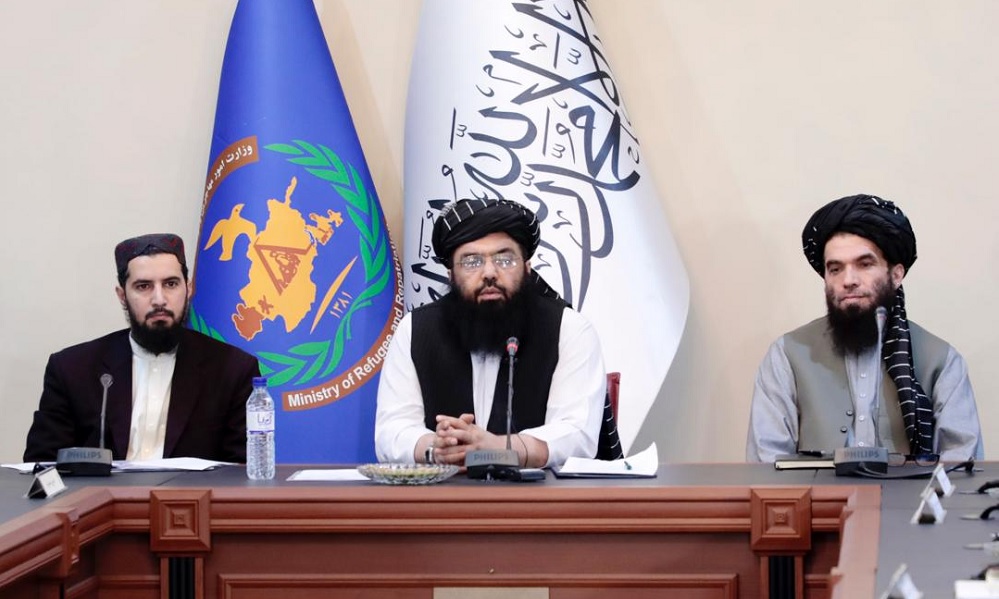
Since the Islamic Emirate came to power, approximately 6.8 million Afghans have returned home, either voluntarily or forcibly, from neighboring countries and other nations, according to the Minister of Refugees and Repatriation.
Mawlawi Abdul Kabir, speaking at a meeting on finalizing a draft plan for a permanent migration solution in Afghanistan, added that 1.3 million Afghans have been internally displaced due to natural disasters during the same period.
With winter approaching, widespread poverty and severe cold are threatening thousands of lives. Meanwhile, the forced expulsion of Afghan migrants from neighboring countries, particularly Iran and Pakistan, continues.
The Islamic Emirate has repeatedly urged neighboring states to allow migrants to return voluntarily. According to UNHCR, over two million Afghans have returned from Iran and Pakistan since the start of 2025.
-

 Latest News2 days ago
Latest News2 days agoAfghanistan signs 30-year deal for marble mining in Daikundi
-

 Latest News4 days ago
Latest News4 days agoAfghan border forces prevent illegal entry of hundreds into Iran
-

 Latest News3 days ago
Latest News3 days agoPakistan summons Afghan diplomat over deadly attack in North Waziristan
-

 Latest News2 days ago
Latest News2 days agoAfghan health minister calls for medical cooperation between Kabul and New Delhi
-

 Latest News4 days ago
Latest News4 days agoJapan allocates nearly $20 million in humanitarian aid for Afghanistan
-

 Latest News3 days ago
Latest News3 days agoKarzai urges reopening of girls’ schools and universities for Afghanistan’s bright future
-

 Health5 days ago
Health5 days agoAfghanistan seeks India’s support in standardizing traditional medicine
-
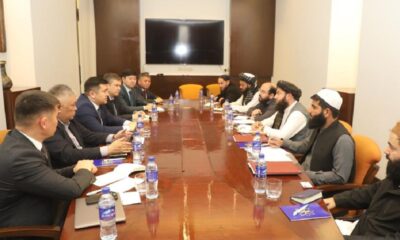
 Business5 days ago
Business5 days agoAfghanistan-Kazakhstan banking ties discussed in Kabul meeting
























